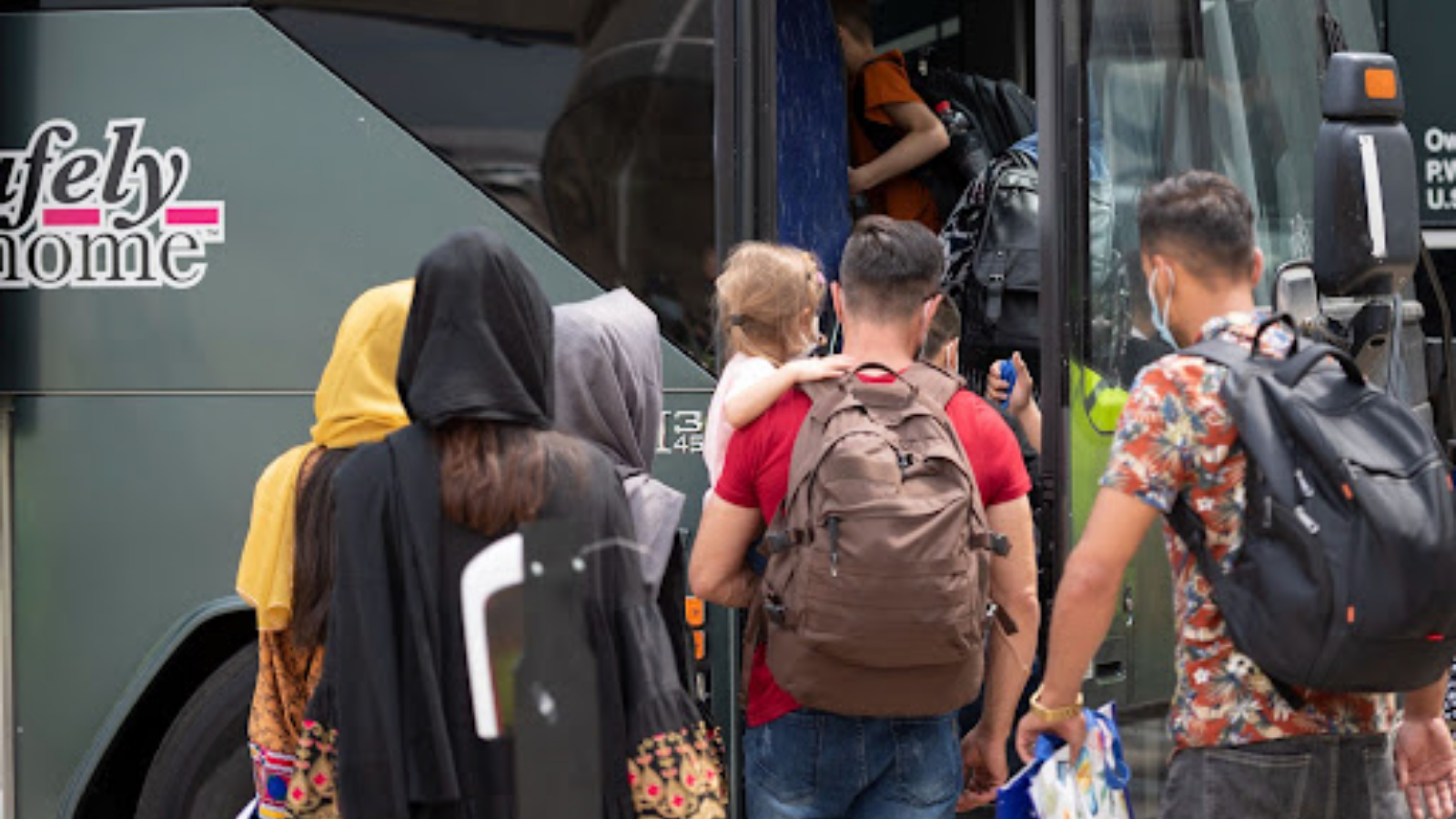With an influx of Afghan refugees escaping Taliban rule arriving in Canada – and most of them settling in Toronto – the federal government does not appear to have a clear long-term plan to help them find affordable housing other than relying on private volunteers and community organizations.
“For the specific needs of the refugees, no, there isn’t (a long-term plan to find affordable housing),” according to Mario Calla, the executive director of COSTI Immigrant Services, one of the main settlement agencies working with the government to help resettle Afghan refugees.
“We’re working within the realm of a housing environment that is challenging for everyone.”
In the absence of such a plan, Calla says Afghan refugees will face the same challenges as all other Canadians given the volatility of the market, namely the lack of affordable housing in and near major cities, where most refugees tend to settle down.
Prince Sibanda, a senior policy analyst and social planner who has extensive experience working with refugees and immigrants, goes even further, saying the government has not learned any lessons from the Syrian refugee crisis of 2015-2016, which was exacerbated by a “huge housing crisis.” Then, like now, refugees had to be temporarily placed in hotels while settlement agencies scrambled to find adequate, affordable housing.
“Most immigrants that are thrown into (the temporary shelter system) report a very traumatic experience they would rather not ever experience again,” he told NCM in a conversation about the structural barriers immigrants, refugees and undocumented residents face in finding affordable housing.
A 2017 report from the Canadian Centre for Policy Alternatives (CCPA) analyzing governmental responses to the Syrian crisis, also found that immigrants, and refugees in particular, face the “largest number of barriers,” including “overcrowded and inadequate housing, precarious rental status, and unsustainable amounts of income dedicated to housing.”
Asked about their long-term housing strategy for Afghan refugees, Mary Jago, senior communications advisor at Immigration, Refugees and Citizenship Canada (IRCC), wrote in an email that the government is “working closely with provinces and territories and settlement service providers” to match refugees “with communities where settlement supports are already in place, with consideration given to whether they have family members in Canada, as well as the availability of schools, housing and language training.”
The government “recognizes it cannot implement its efforts to resettle Afghans without the support” of settlement organizations, foundations, donors and landlords across the country, the spokesperson said. This includes helping raise funds towards finding homes for these newcomer families. Like with previous nation-wide resettlement campaigns, Canadians have responded enthusiastically, the spokesperson said.
Jago also said refugees under the Government-Assisted Refugees Program will receive government support for one year, “including up to 12 months of income support.”
Hotels, Not Homes
After the initial mandatory 14-day quarantine, Afghan refugees who choose to remain in the GTA are transported to temporary hotels where Calla estimates they will remain for four to six weeks until COSTI can find them permanent housing.
COSTI is looking after about 300 refugees who want to settle in the Toronto region. A major challenge is finding affordable homes that are big enough to fit the “very large families” who are coming in.
Acknowledging that finding affordable housing “is challenging at the best of times in Toronto,” Calla says this is that much more difficult for government-sponsored refugees who are surviving on a government allowance.
According to Jago, “(m)onthly income support levels for shelter, food and incidentals are guided by the prevailing provincial/territorial social assistance rates where the refugee resides.”
“Monthly Resettlement Assistance Program (RAP) income support may also include additional discretionary supplements, such as the RAP housing supplement, which are provided based on demonstrated need.”
Calla says the same challenge existed during the Syrian refugee crisis which saw over 20,000 refugees settle across Canada. He says families then were also staying at temporary hotels for an average of five and a half weeks due to the difficulty finding affordable and adequate homes.
According to the CPPA report, Syrian refugees experienced such “prolonged hotel stays” in Toronto, Ottawa, Halifax and Vancouver, that settlement agencies in those cities were forced to ask for a “temporary pause, or a slow down” in new arrivals.
Hotels, a band-aid solution
Increasing access to the stock of “quality and affordable housing” is the “cornerstone of successful refugee resettlement” and immigration policies, according to the CPPA’s report.
The report presents the case study of the Welcome Place, in Winnipeg, as the only successful agency in that city to not have resorted to temporary hotels.
Like Calla, the report’s authors do not discount the “abundance of community efforts” and “welcoming disposition on the part of Manitobans” – as well as the “private and voluntary energy” – that went into achieving everything from raising funds to getting refugees into stable, affordable housing.
Yet, successfully housing Syrian refugees depended not just on community goodwill but “on the mobilization of government support at the provincial and federal levels,” it states.
Similarly, a 2019 report from the Transatlantic Council on Migration looking at challenges and possible policy solutions to housing refugees in Canada, found that “even in the most challenging housing markets,” Syrian refugees were permanently housed thanks to the “outpouring” of support from civil society and volunteers.
“Yet, affordability problems remain a frequent concern,” that report notes, particularly for refugees whose main source of income is not full-time employment.
The report made five recommendations including increasing and diversifying non-for-profit affordable rental housing units to accommodate large and multigenerational families and specific steps to help low-income households, in addition to making available more social housing and increasing the benefit payments for refugees.
“Increases in minimum wage levels would also benefit the many refugee newcomers who enter the labour market in low-level service-sector positions…very often because their professional credentials are not recognized or their official language skills are not yet sufficient.”
Similarly, the 2017 report suggested the $15 million the government spent in hotels during the Syrian crisis could be much better spent on “more durable solutions that can benefit future refugee resettlement efforts.”
Lessons (Not) Learned
Unfortunately, says Sibanda, since the Syrian crisis and despite it, the government has not made any significant commitments to build more affordable housing.
He says though housing is “one of the immediate things” governments ought to focus on, “this is being left up to the communities that host” refugees instead.
Jago says the government has “already received thousands of emails from individuals and organizations offering their support.”
But the 2019 report says relying on “private-sector goodwill” can lead to “ethno-specific, targeted measures (that) create ethical dilemmas as different groups of refugees receive different levels of assistance, and they may not be sustainable in the long run.”
For his part, Calla says, his settlement agency has learned a few things from the previous huge resettlement experience. This includes implementing changes in how COSTI organizes and deploys refugee services and new policies to help screen, train and orient volunteers.
“So, when we were called upon this, we were ready – we had a refugee services team that was fairly strong,” he said, which included helping people move into the hotels. “And we’re expanding it.”
Echoing the reports, however, Sibanda says these measures fall short of significant, structural and proactive changes that will benefit immigrants and refugees in a permanent way, well beyond the urgency of their situation.
Overall, the situation remains much the same.
And “that’s a gross failure within the system,” he says.
Canadians looking to contribute to the settling and integration of Afghan refugees can email [email protected].
Fernando Arce is a Toronto-based independent journalist originally from Ecuador. He is a co-founder and editor of The Grind, a free local news and arts print publication, as well as an NCM-CAJ member and mentor. He writes in English and Spanish, and has reported from various locations across Canada, Ecuador and Venezuela. While his work in journalism is dedicated to democratizing information and making it accessible across the board, he spends most of his free time hiking with his three huskies: Aquiles, Picasso and Iris. He has a BA in Political Science from York University and an MA in Journalism from Western University.





